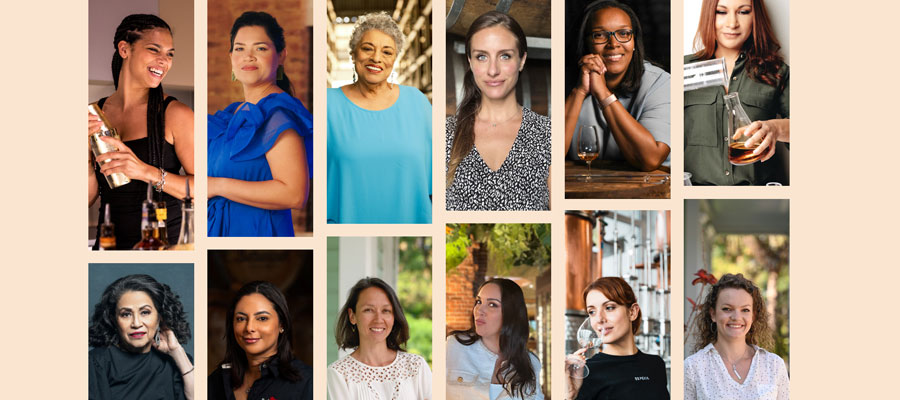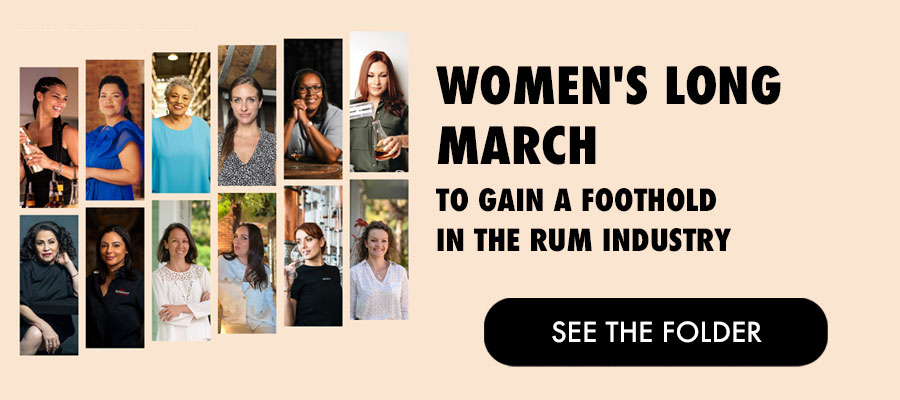
When we began this investigation at Rumporter, we wondered whether women would be the future of rum. We quickly realised that we were behind the times. Not only would women be the future of rum, they were also its present.
Through our interviews, we were able to paint a general picture of the place women occupy in the industry. When icons such as Joy Spence (Appleton) and Lorena Vasquez (Zacapa) started out, women were rarely found in distilleries, let alone in positions of responsibility… but things have changed for the better over time.
Indeed, women now occupy prominent positions in all aspects of rum production and marketing: company directors (Matha Miller, NRJ in Jamaica), brand managers (Florence de Coriolis for Grays in Mauritius), marketing and communications specialists, brand ambassadors (Marie El Hanafi for Millonario and Juliette Douchement for Planteray & Canerock), distillery guides… In short, the spectrum is particularly broad.
More and more women in production jobs
Although production-related professions such as cellar masters and master distillers remain predominantly male, we were struck by the growing number of women occupying these highly responsible positions within distilleries.
When it comes to British rum, we naturally think of the pioneer, Joy Spence, who has reigned over Appleton (Jamaica) for decades, or Trudiann Branker (Mount Gay, Barbados).
However, it is in the Hispanic world that women seem to have made the biggest impact so far: the iconic Lorena Vasquez (for 41 years!) at Zacapa in Guatemala, Jassil Villanueva at Brugal (Dominican Republic), Gabriela Ayala at Cihuatan (El Salvador), Carmen Lopez de Bastidas at Carupano and Nancy Duarte for Santa Teresa (both in Venezuela)…
On the French side, women are still few and far between in operational roles, and there is undoubtedly still some way to go. However, we can mention Marie Ferrand, who oversees the cellar, and Louise Bouilloux, who is in charge of liqueurs and similar products at Isautier (Réunion), Anna Ostrovskyj, who operates in Guadeloupe (and Marie-Galante) with her consulting firm Cœur de Chauffe, and Karine Lassalle, who, after serving as cellar master at J.M. (Martinique), is now making waves at Rémy Cointreau. Virginie Pouppeville and Nathalie Guillier-Tual, who worked for many years for BBS (Trois-Rivières, La Mauny, Bourdillon, etc.)…
Areas for improvement
All the women we interviewed therefore report a real increase in the number of their peers in the industry. With a few exceptions, they have been generally well received by their male colleagues and have in no way been hindered by their gender.
However, women are still underrepresented in roles related to the cultivation and harvesting of sugarcane—the very beginning of the production chain—and… at the very top.
Very few of them actually own the distilleries or brands they work for, with the notable exception of Delphine Gardère at Barbancourt in Haiti, and perhaps Jassil Villanueva, who is part of the fifth generation of the family running Brugal.
In other words, they do not hold economic power, even though they increasingly influence the strategic directions of brands and groups. While most of the women we contacted have not experienced sexist behavior from men in the context of their roles or daily work, many point to a heavy, sometimes even aggressive atmosphere toward women at certain spirits-related events (masterclasses and especially trade shows), where alcohol and group dynamics can come into play.
Some even admit to avoiding attending these events without a male colleague to “protect” them in case things go wrong.
A feminine way to create and enjoy rum?
We also wanted to know if there is a “feminine way” of producing rum. The women we interviewed are divided on the question. However, they generally agree that women’s sensory and emotional capacities can be superior to those of their male colleagues… which influences both the production process and the final flavors of the rum.
When asked, “Why do you think women drink less premium rum?”, factors such as social pressure and cultural heritage were cited as explanations. All of them say they are working to change both women’s perception of rum and society’s perception of women who drink it. But the best way to understand is, of course, to hand them the microphone!

